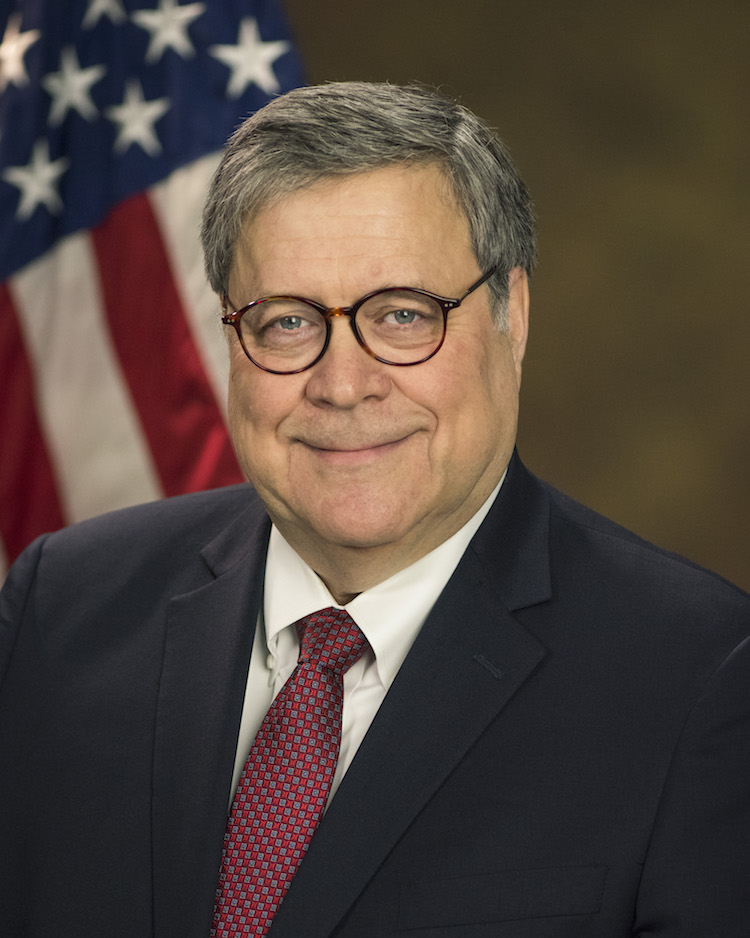Barr refuses to testify before House as Justice Department rejects request for full Mueller report

U.S. Attorney General William Barr. Photo from Wikimedia Commons.
U.S. Attorney General William Barr has refused to show up for questioning before the House Judiciary Committee on Thursday.
Barr decided not to appear because of a procedural issue: Democratic U.S. Rep. Jerrold Nadler of New York, the committee chairman, said he would allow staff members to question Barr. Nadler’s insistence on staff questioning “is inappropriate,” said Department of Justice spokeswoman Kerri Kupec.
The Washington Post, the New York Times, the Los Angeles Times and the Wall Street Journal have coverage.
Barr’s withdrawal came as the DOJ sent a letter to the committee explaining why it ignored a subpoena to turn over an unredacted version of the report by special counsel Robert Mueller along with underlying evidence from the investigation.
“Allowing your committee to use Justice Department investigative files to re-investigate the same matter that the department has investigated and to second-guess decisions that have been made by the department would not only set a dangerous precedent but would also have immediate negative consequences,” wrote Assistant Attorney General Stephen Boyd.
Nadler has threatened to hold Barr in contempt of Congress for refusing to turn over the full report.
Several congressional Democrats called for Barr’s resignation after his testimony before the Senate Judiciary Committee on Wednesday.
Barr acknowledged that Mueller had written him a letter that asked him to release Mueller’s executive summaries before release of the full report. Barr said he declined to do so because “I wasn’t going to put out the report piecemeal.”
Mueller’s letter had complained that Barr’s own summary of the report’s key conclusions “did not fully capture the context, nature and substance of this office’s work and conclusions.”
Barr told lawmakers that he considered the letter “a bit snitty,” and Mueller himself had told him that his principal concern was not with Barr’s summary but with the media reports on the summary.
In any event, Barr said, the Mueller report became “my baby” after it was submitted to him.
Barr’s summary noted findings that the Trump campaign and its associates did not conspire with Russia to influence the 2016 presidential election. Barr also said Mueller didn’t draw a conclusion as to whether President Donald Trump obstructed justice, but Barr and the deputy attorney general had concluded that the evidence was insufficient to establish obstruction.
In the report, Mueller said that, when he declined to make a conclusion on obstruction, he took into account a DOJ legal opinion that an indictment of a sitting president would violate separation of powers. If Mueller determined whether Trump committed a criminal offense, there would be no trial where Trump could exonerate himself, the report said.
Barr told the committee Wednesday that Mueller shouldn’t have investigated after he decided he “shouldn’t go down a path of making a traditional prosecutive decision.”
Write a letter to the editor, share a story tip or update, or report an error.


